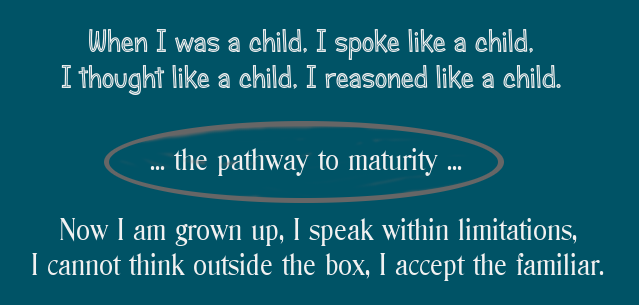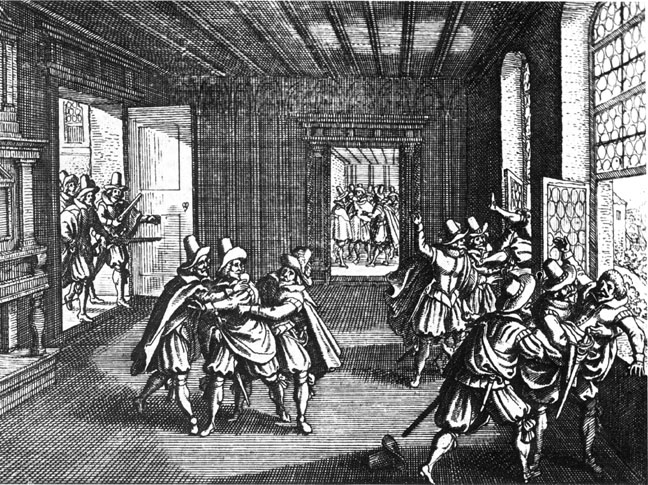Not sure if I need to reconfigure the words of the rhyme to make them mine or not, but they certainly have the potential to be a song that could inspire and define a generation. Stay with it I have not lost the plot completely…
We could apply it to the Brexit: in / out? But at least we have to shake IT all about. No change takes place without shaking and the in / out debate can miss the point if we are not committed to shake things. Only shaking releases what cannot be shaken, and that is described in kingdom terms in Hebrews. (An aside: Why is it called HEbrews if it was written by a woman?)
I am not writing though about the ‘B’ word but about our continual pursuit of social transformation. Change I have suggested is from the bottom up and a truly apostolic vision has to be marked by patience, knowing that the task is to sow the seeds and that it might take a generation, or even some centuries to grow, but the patience means that the process is not abandoned. True patience is not passivity but gives energy to persevere. In suggesting change is bottom up, beginning in the desert, this is not to say that a disciple of Jesus cannot be at the ‘top’ and occupy a position of power. What is done with the power is of course the key, but if the body of Christ continues to hope for appointments to the ‘top’ so that we can dictate behaviour it seems to me that we are aligning ourselves with a process that is alien to how the Gospel brings about change. A change culture is where the body of Christ changes the spiritual atmosphere so that space is created for people to grow up to fulfil potential (regardless of faith response), and with a change of atmosphere an openness to the salvatory elements of the Gospel message also.
In this post I want to open up the question of how do we engage the powers – is it from within or without? If we take a ‘powers are appointed by God’ approach we will be tending to look to reforming those powers, whereas if we emphasise the otherness of the kingdom of God we are more likely to look to stand outside the structures viewing powers as more or less necessary evils, but still essentially evil. As for the powers being instituted by God (Rom. 13) – a great text for those who believe Christians should not be out there causing havoc by protesting what their beloved leader is up to – we can see how Paul is relativising the authority of human leaders and not normalising their behaviour. It aligns with Jesus words to render to Caesar what is Caesar’s and to God what is God’s. A relative response to Caesar, working out what he is ‘owed’ and an absolute response to God to whom we owe everything. What do we owe the powers? Submission or confrontation?
Engage or disengage? I think both can be prophetic, both are called for, both are powerful and both are subject to deception. There are OT prophets whose context was deeply inside the structures and there were those who were speaking and acting from the outside. To the extent that they both aligned their perspective to God’s they were being prophetic.
The two descriptions of ‘salt’ and ‘light’ also point in these two directions. The salt is immersed in and has a role to inhibit the growth of the negative and promote the growth of the positive; light illuminates and shines forth as an alternative so by implication is somewhat separate to what needs exposing. I consider then that it is not an either / or approach, and that some will be led in one direction and others in another direction.
An immersion in the structures requires a wisdom as to how to work with compromise. Structures are not perfect, even the best ones are imperfect and all structures have a default to demonisation (the biblical material on the city is key to understand this… and it is important to understand this not simply in relation to ‘secular’ structures). Some aspects of our western world (in particular parts of the economy) have been uncritically baptised by the Christian world, and we should be more suspicious of how we engage with such areas. If something can be redeemed then we have a reason for involvement. Redemption requires a connection, a connection will necessitate a compromise, but that compromise has to be redemptive to pull it toward a more wholesome position. I consider the test has to be how an area of society humanises (or not). To dehumanise is to act demonically.
How we approach this is so challenging. One organisation might be happy to draw funds from sectors of the financial world that facilitates the ever-increasing divide in our world and then use such funds for good – others might view the very source as untenable. This goes far beyond the rights or wrongs of drawing on, for example, lottery funds.
Different levels of faith probably are one aspect in how we respond, though sometimes I think an uncritical approach has silenced the questions that have to be asked if we are to discover what is truly a faith response. What is sure is for anyone dealing with change from the inside they will require two aspects of cleansing – a continual washing of the heart otherwise they will be soon in trouble, and the washing of their feet regardless of how clean the heart is. Our feet will always get dirty when seeking to walk through this world’s dust. That is not a problem as Jesus made clear to Peter. We cannot always make the right response, but we can seek to make the redemptive response.
Given that so much of our world has evolved on an economic myth (this does not mean that it is all therefore bad) there are those who will definitely be much more comfortable in stepping outside what is considered the norm. I have long advocated that for the sake of believers today and in the light of what is coming we have to find new (and really they are old) views of work. It has to be unhooked from monetary reward. Paul never said ‘if you do not earn you should not eat’, but it is hard to find anywhere that is able to define work other than in a monetary way. There is a very real place for the stepping to the (out-)side of society, of not conforming to the status quo. Maybe long live the hippie in all of us. The danger is of course of defending the non-taking of responsibility as being prophetic!
Dangers, dangers and more dangers. But if we are focused on change the direction our feet might take us could just surprise us.
Some opt to be in, some choose out… some will be in today and out tomorrow and vice versa. Whatever our response, let’s not forget to shake IT all about, or at least participate in the shaking that God is doing right now. The façades are opening again.




